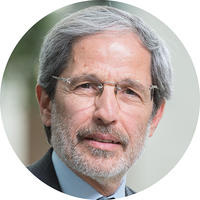On October 22, Argentina will hold presidential elections, with the winner taking office on December 10. He or she will be confronted with a dire economic situation.
What will they be working with? Argentina’s annual inflation is running at 140% and accelerating, while the gap between the ‘official’ exchange rate and those that escape government control exceeds 150% (Argentina has 20 different exchange rates). Meanwhile, the central bank has hardly any freely usable reserves left.
Five candidates will be competing for the helm of this listing ship. Yet, according to the result of the primary elections on August 13, only three have a real chance of winning the contest: Javier Milei, a self-proclaimed “anarcho-capitalist”; Sergio Massa, the current minister of economy; and Patricia Bullrich, a former security minister with a hawkish profile. Each collected about 30% of the votes cast in the primary elections.
According to recent polls, it is unlikely that any of the three candidates will reach the threshold to avoid a run-off election; that is, win more than 45% of the vote outright, or more than 40% with a 10-point lead on the second-place candidate. Hence, a ‘ballotage’ — to be held on November 19 — may be necessary.
The candidate field
Mr Mieli is the front-runner. He won 30% of the primary election vote, but polls predict that he may receive about 35% this time. He has an unfettered faith in markets and a very colourful personality. He claims not to have brushed his hair since he was 13 (he is now 52) and lives with five mastiffs, all named after famous liberal economists, and all cloned from a deceased dog with whom Mr Milei apparently still ‘speaks’ with. His economic proposals are equally outlandish.
Wielding a literal chainsaw, Mr Milei vows to cut public spending by at least 14% of gross domestic product within his first year of government. He also promises to “blow up” the central bank and “dollarise” the economy by exchanging all pesos in circulation for US dollars. He argues that stripping the country of its currency, the peso, would prevent Argentina’s corrupt “political caste” from financing extravagant fiscal policies. Politicians, Mr Milei argues, would then be forced to live within the country’s means.
This argument doesn’t hold up. Dollarisation would not guarantee that Argentine politicians embrace fiscal discipline. They could still borrow and issue IOUs (quasi-monies), as they did during the ‘convertibility’ regime from 1991–2001. But an even more pressing problem for Mr Milei’s dollarisation plan is that he will find no hard currency reserves in the central bank. He brushes off the issue, arguing he could borrow enough dollars to buy back the pesos in circulation, though Goldman Sachs estimates that the overall price tag would be around $35bn.
The Peronist candidate, Mr Massa, came out third in the primary elections, but he has a chance of coming second to Mr Milei on October 22. Prolonging the economic agony, without precipitating a full-blown crisis before the run-off elections, is his best-case scenario. Mr Massa promises a “national unity” government and assures he will “kill” inflation. Yet, inflation has soared under his watch since he was appointed finance minister in July 2022 and scandals exposing obscene levels of government corruption have driven confidence in the government to record lows.
But Mr Massa, a shrewd politician, campaigns as if he was not part of the government. In a recent article, the Financial Times warned that in judging Mr Massa, readers should avoid making “two fatal errors”: never underestimate him and never believe everything he says. The International Monetary Fund (IMF) apparently missed that warning. After ‘sending’ $7.5bn in late August (a sum that allowed Argentina to stay current with the Fund), Mr Massa engaged in a spending spiral, including tax breaks, handouts and a freeze on gas and electricity rates — all which the Fund had explicitly counselled against.
Ms Bullrich, the candidate for the mainstream opposition coalition, Together for Change, came out second in the primaries, but since then has been struggling for a place in the run-off. She has appointed Carlos Melconian, a well-known economist, as her future finance minister. He has shouldered most of the economic campaign talk and presented the blueprint of the economic plan that Ms Bullrich would implement if she were elected.
Mr Melconian’s plan envisages a far more credible 3.5% reduction in public spending during the first year in office, underpinned by structural reforms to facilitate ‘formal’ job creation and investment (45% of workers toil in the informal sector), and a roadmap leading to the unification of the exchange market.
The IMF’s role
While the three candidates would approach Argentina’s economic challenges differently, in all three scenarios the IMF would play a critical role. Since 1956, when Argentina joined the IMF, it has had 22 programmes. Most have derailed due to a combination of fiscal slippages and poor design. The current programme is no exception.
What stands out, however, is the Fund’s readiness to turn a blind eye to the government’s fiscal and monetary slippages. Keeping the programme alive has served the Fund’s creditor interest but has undermined its credibility (Argentina is its main debtor and the Fund’s ‘benevolence’ kept the government current with its IMF obligations).
In a recent statement, the US Under Secretary for International Affairs, Jay Shambaugh, noted that “[t]he IMF must be willing to walk away if a country will not take needed steps. It is essential that programs not just provide funding. The funding must serve a purpose and come with policies that return a country to stability.”
It was a thinly veiled criticism of the IMF’s tolerance for the creative accounting and broken promises of a government that has put Argentina, yet again, on the precipice.

Hector Torres is a senior fellow at the Centre for International Governance Innovation and a former executive director at the IMF.












